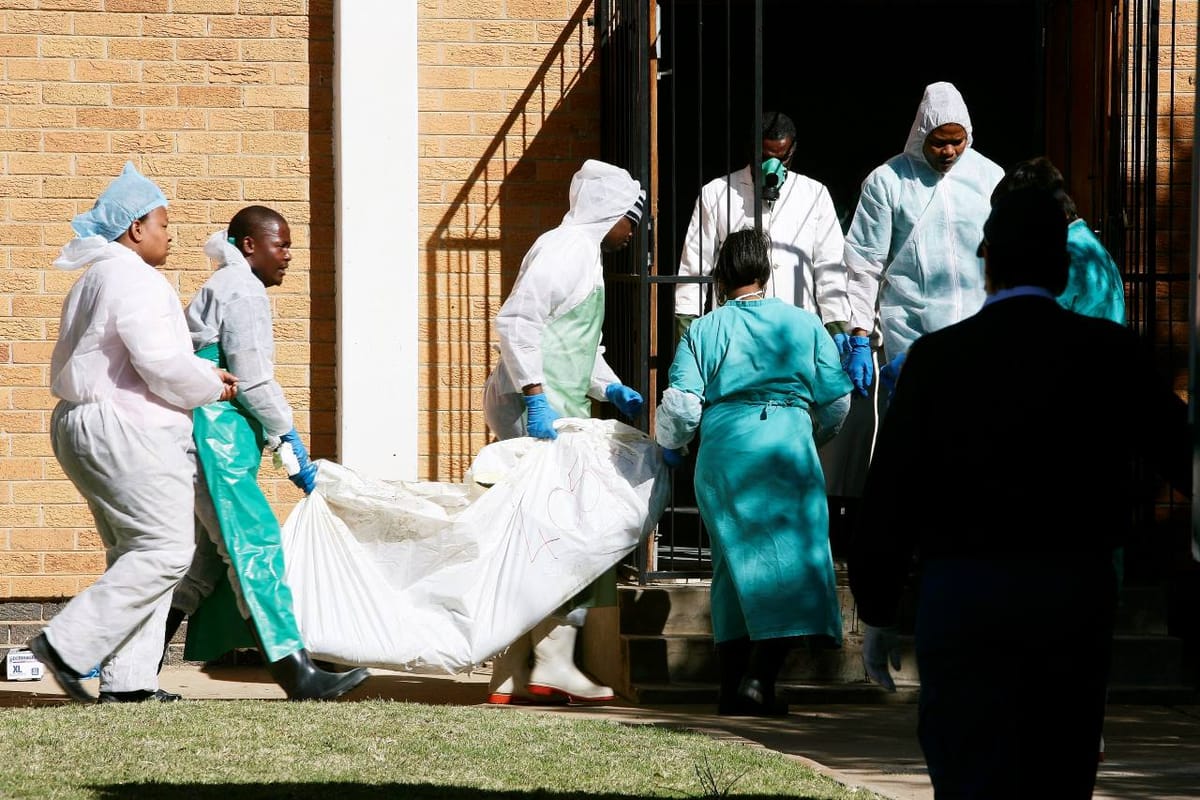Concerns mount as WC mortuaries hold over 300 unidentified bodies

Source: CapeTown ETC
Author: Aiden Daries
The Western Cape Health and Wellness Department (WCHD) is grappling with more than 300 unidentified bodies in its state mortuaries, with 66 of them being children and the majority being men, according to Department spokesperson Byron Le Hoe.
Also read: Penlyn Estate hostage crisis: Family rescued, husband arrested
'These include children who may have been admitted in the last few months of the 2023/24 financial year where the deceased had not yet been identified,' Le Hoe explained.
According to News24, by the end of the 2023/24 financial year, the department reported 313 bodies awaiting identification, with 290 remaining unidentified from the previous financial year.
Le Hoe expressed concern, stating, 'The Department of Health and Wellness is concerned about the number of unclaimed bodies.'
He emphasised the importance of families registering all births and ensuring they possess valid original identification documents, as it significantly aids in the identification process, crucial for establishing the identity of unidentified decedents.
Le Hoe stated that the South African Police Service (SAPS) holds the responsibility for identifying decedents, with support from the health department's Forensic Pathology Service (FPS).
He explained that FPS initiates the identification process for an 'unidentified' individual if no one has stepped forward within seven days of the person's passing.
Identification typically involves fingerprinting, DNA analysis, or other scientific techniques.
'If after all avenues of identification have been exhausted without success, after 30 days, the local authority where the death occurred will begin the burial process,' explained Le Hoe.
'FPS typically only initiates the burial process once all avenues to identify a decedent have been explored, although regulations permit burial after 30 days,' he added, noting that a body initially labelled as 'unidentified' could still be identified through scientific means but might remain unclaimed.
Sergeant Wesley Twigg, a spokesperson for the Western Cape police, stated that a deceased person is classified as 'unknown' or 'unidentified' when their family cannot be located, and DNA samples cannot be linked to any relatives.
'Identikits are compiled in efforts to solicit public assistance in locating the family,' Twigg explained.
According to WCHD, the body remains within the FPS system for 30 days after the conclusion of the last investigation process, in compliance with FPS regulations.
'This period includes DNA sampling or when the SAPS investigating officer confirms the conclusion of their investigation or search for relatives,' added Le Hoe.
During an autopsy, if the deceased remains unidentified, the pathologist collects DNA samples.
After seven days, if fingerprints are still unidentifiable, the SAPS detective obtains them and sends them to the Department of Home Affairs and the Local Criminal Record Centre (LCRC). In some cases, the detective may first search the provincial criminal database.
After 14 days, if fingerprints have been obtained, the deceased is transferred to the 'long-stay' refrigeration unit.
The FPS requests a DNA profile for unidentified cases, and fingerprint results are forwarded to the respective police station commander and FPS from the LCRC.
Le Hoe explained, 'If the SAPS investigating officer cannot locate the family, they will authorise the burial of the deceased. FPS then begins burial arrangements with the municipality after completing all processes.'
Dr. Saadiq Kariem, Chief of Operations for the WCHD, noted that most unclaimed bodies resulted from unnatural deaths and remained unidentified, often due to financial constraints preventing families from burial. In such cases, the deceased is buried as a pauper.
Kariem highlighted the increase in violent deaths, especially among young men, correlating with a general rise in societal violence. Emergency centre data showed significant spikes in violent injuries, particularly over weekends.
WCHD expressed concern over the unclaimed bodies, emphasising the lack of closure for families and the strain on resources required for storage. They noted a worrying increase in homicides involving firearms, necessitating urgent attention to address escalating violence.
Addressing the 66 children among the deceased, Kariem lamented the 'extremely disturbing and tragic' reality, emphasising the vulnerability of these young members of society. 'Our most vulnerable members of our communities, whom we have to protect and nurture, are being shot and killed,' he stated.
'These children are often caught in crossfire between rival gang members and are innocent victims.'
Kariem highlighted collaborative efforts by the Western Cape government and the City of Cape Town, led by the premier and mayor, to combat endemic violence. 'We now have a violence prevention unit that will implement an area-based team approach,' he explained. 'At the local level, we will bring the whole of government as well as the whole of society together to tackle the violence plaguing our societies.'
He noted the involvement of every relevant government department in initiatives focusing on three key aspects: improving law enforcement effectiveness and coordination, strengthening social protective factors against violence, and enhancing safety infrastructure in public spaces.
Also read:
